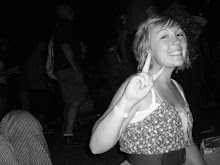
How do you show that you care about something? You share it. It is not a crazy new evolutionary concept and music is no exception to it. Music was meant to be shared. You only have to look at the origins of folk music to realise how important it is to share and participate in musical story telling. The internet then, would have to be one of musics greatest friends of the 21st century. Its new DIY, collaborative new media technologies have allowed the average citizen to participate in the transformation and recirculation of media content allowing music to be shared in a variety of different ways and with a whole lot more people (see here). We all have the ability to be produsers.
The networked environment of sites like Myspace facilitate the sharing of music. Myspace users can add bands as friends, add songs to their profile which in turn can be added to another friends site and so on. Sharing is a never ending process, constantly being built upon as more and more people join the network.
File sharing on Kazaa, Limewire and Windows live messenger allow users to share files quickly and at no cost. Even the gatekept file sharing networks such as Itunes give people the ability to share music far more easily than the traditional model of purchasing cd's and lending them to friends. (See my blog post "Music 2.0. Get Excited!" for an interesting insight into the future of file sharing)
Citizen journalism also has a role to play in the sharing of music. Blogs such as Yelling about music, Totally Fuzzy and Indy alternative blog site Obscure sound share the latest music news that mainstream media neglect to tell us. They provide information for a niche set of music fans who can then comment and share their own thoughts and experiences. Perhaps even leading to collective intelligence.
The most brilliant part about all of these avenues is that they can then be linked together. A youtube post can appear on a myspace page, a blog site, an email or facebook, forming one huge network of shared content. I recently participated in this sharing and linking process. I loved my friend Liam Griffin's new film clip and wanted to share it with my friends so I copied the link from Youtube onto my blog site and provided further links to his myspace page. He just increased his potential fan base without even lifting a finger. Another example of networked collectivism is Baym's work on fan communities where it was found that fans build their community through a network of internet sites, each with its own specialised purpose and format. Music was shared through fans spreading their knowledge throughout the network.
In DIY communities music can be shared by both the musicians, the fans and sometimes hybrid produsers. It allows for niche, grass roots experimentation for budding musicians as well as a space for fans to interact and share their passion for music with others. Music was meant to be shared. The internet has allowed more ways to share than ever before. In a world without copyright laws it's a match made in heaven right?
